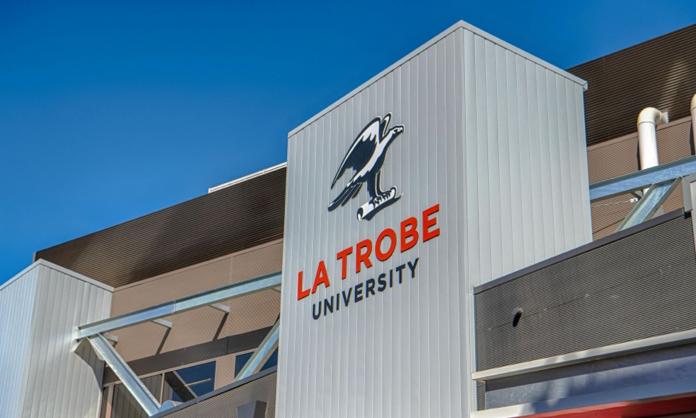La Trobe University Vice Chancellor, John Dewar, seems to be suffering from amnesia. When asked by an angry student at his “all student forum” on 11 August what he thought about a student-led campaign to dissolve the newly-established La Trobe Student Association (LTSA), Dewar replied: “For one organisation to be seeking very publicly to destroy another, I find this very distressing.”
But that is exactly what the administration has been doing to the La Trobe Student Union (the union) since the start of 2020. Management created the new LTSA to undermine the union which, although fairly weak, presented a potential locus of resistance to Dewar’s agenda. The union has been starved of funding and other resources and evicted from its offices, although the university has not been able to dissolve it entirely. The management-backed LTSA has been designed to impose the administration’s agenda on students and to block resistance against it. Fortunately, students are now campaigning for it to be dissolved.
The financial pillage of the union to fund its tame-cat rival has been shameless. By allocating 90 percent of the Student Services and Amenities Fee (SSAF, which the university collects from students and from which student organisations are funded) to the LTSA, an estimated $2.2 million worth of funds were stolen from the union. At no point were La Trobe students consulted about whether they approve of their money being used in this way, in what was a management-led putsch against a democratically-controlled student union.
The LTSA is undemocratic and more like a corporation than a student union. Its constitution states that it is an “apolitical organisation”, meaning its purpose is not to challenge political decisions of the university, such as the decision to cut courses, or advance social justice issues that are important to many students. For any decision to be passed by the elected Bundoora Student Council it must be approved by an unelected board of directors, which includes the unelected CEO of the LTSA. This board is in turn overseen by an “advisory committee” that includes Dewar and others from university management. Significantly, the board has the power to remove elected student representatives and expel members from the “association” as it sees fit.
The undemocratic powers of the LTSA board are now being wielded against elected student representatives. In early August, a motion opposing the university’s planned restructures and pledging support for a student campaign against them—put forward by the LTSA’s Education Officers, Yasmin Jenkins Gunn and Rory Gee, and passed by the majority of the Bundoora Student Council—was overturned by the board. Similar motions that were passed by the council in support of an upcoming climate justice rally and against the far-right Menzies Institute at Melbourne University were also overturned by the unelected board.
In an email to the LTSA Social Justice Officer, Nahui Jimenez Ludekens, the LTSA Chair, Jenna Boyd, justified the decisions on the basis that the LTSA is an “apolitical organisation” and that causes such as these undermine the body’s commitment to “student wellbeing”. Boyd added that the motion opposing the university structures was “offensive” since the board saw it as a “personal attack” on Dewar.
Meanwhile, Boyd has spoken approvingly of Dewar’s planned restructure on behalf of the LTSA board. In an official statement Boyd said: “The proposed operating model focuses more sharply on LTU strengths and distinctiveness in teaching and research. Additionally, it has been designed to simplify business processes and operations while making a positive difference to students, communities and partners.” The restructures will cut at least 200 jobs, merge a number of schools and move hundreds more courses permanently online. The LTSA is little more than a mouthpiece for Dewar and the administration.
Historically, the La Trobe Bundoora campus has been one of the strongholds of student activism. Throughout the 1970s, La Trobe students were the forefront of opposition to the war in Vietnam in Australia, known for their regular campus demonstrations and occupations that mobilised the masses of students. Although a far cry from its hey-day, attempts by the university to impose hundreds of course cuts across the humanities in 2012 were met by a student-led campaign which managed to save a number of courses, with Dewar, at one point, chased into the university’s underground sewer-system by a crowd of angry students.
The student union today is considerably weaker, which is why the LTSA could be established with little resistance from students or the existing union. And the situation has not been helped by the pandemic and online learning, which Dewar and management have been using to their advantage.
Nevertheless, if successful, Dewar’s anti-democratic move against the student union could become a template for similar attacks across the country, or at least give other Vice Chancellors an idea of what is possible in the current climate of student unionism. Which is why it is important that students are now organising to disrupt and disorganise Dewar’s restructures and to dissolve the undemocratic farce that is the LTSA.
In what would have been an otherwise stultifying lecture in a tightly-controlled Zoom meeting (with the chat and other interactive functions disabled to ensure the least possible input from students) Dewar’s “all student forum” was transformed into the online-equivalent of students chasing him into La Trobe’s sewer-system, forced to respond to angry students in the Q and A after his monologue justifying the restructures. “How do you justify this pathetic excuse for consulting students?” asked one student, which Dewar had to admit that the “consultation” wasn’t really about listening to students at all.
“You earn more than the prime minister. How do you justify slashing so many jobs and destroying so many lives?” asked another student. “You say that La Trobe is going broke to justify the cuts but according to the La Trobe University Annual Report 2020 the university has $553 million ‘accumulated funds’ (profits held from previous years). Why are you lying to students about available resources?” asked another.
For Dewar and the administration, the lie that they are pursuing this restructure because of financial difficulties or that the LTSA exists to advance “student wellbeing” is necessary to conceal the true character of their agenda, which is a for-profit model of higher education and a pro-management “student association” that can facilitate that project. That fiction starts to break down when students begin to mobilise the force that Dewar is adamant to stifle: the democratic power of students willing to fight back.
In the coming weeks, La Trobe students will have an opportunity to do just that and dissolve the LTSA. The student-led campaign has triggered a process in which a student general meeting must be called to discuss a resolution calling for the LTSA’s dissolution. They must hold this meeting between 27 August and 2 October. According to the LTSA’s constitution, 75 percent of LTSA members in attendance must vote in favour of the dissolution to make the decision binding.
La Trobe Students Against Uni Cuts, a student-led activist group, have been organising a series of student forums and actions, including an online rally co-hosted with the National Union of Students to be held on 19 August to protest both the LTSA and the restructure.
To be successful, the campaign to dissolve the LTSA will require students join the organisation (with the explicit aim of dissolving it), convince other students to do the same, and attend the student general meeting when it is announced in order to vote in favour of the LTSA’s dissolution. If successful, it would mean transferring the LTSA’s funding and assets back into the hands of the student-controlled LTSU, mobilising students in the process, and placing them in a stronger position to resist the university’s latest round of restructures.
It would also send a message to Dewar and other Vice Chancellors that they can’t get away with attacks without facing a fight from students.









